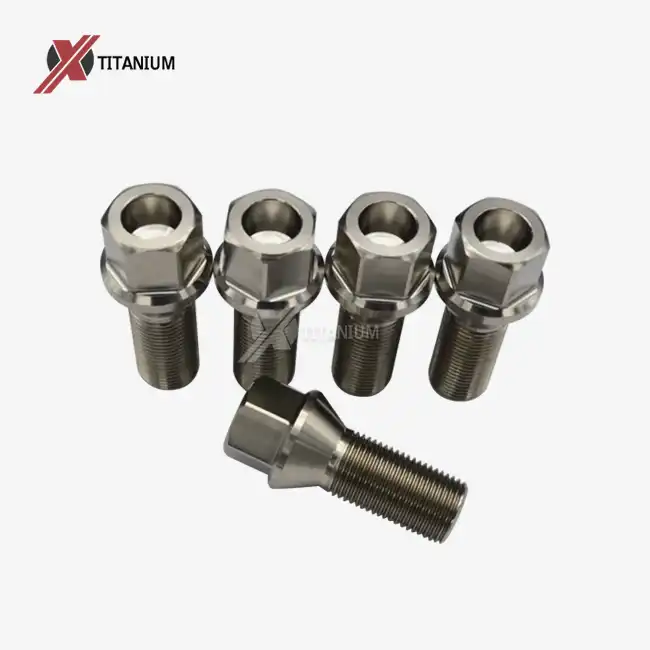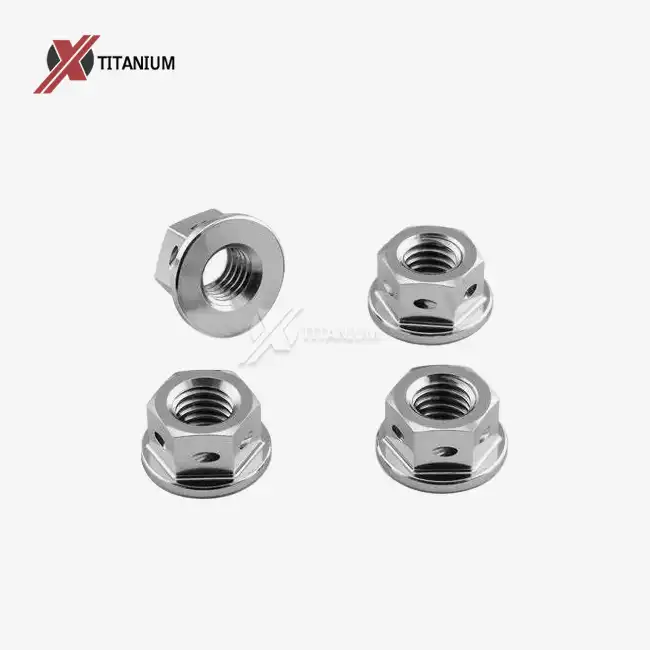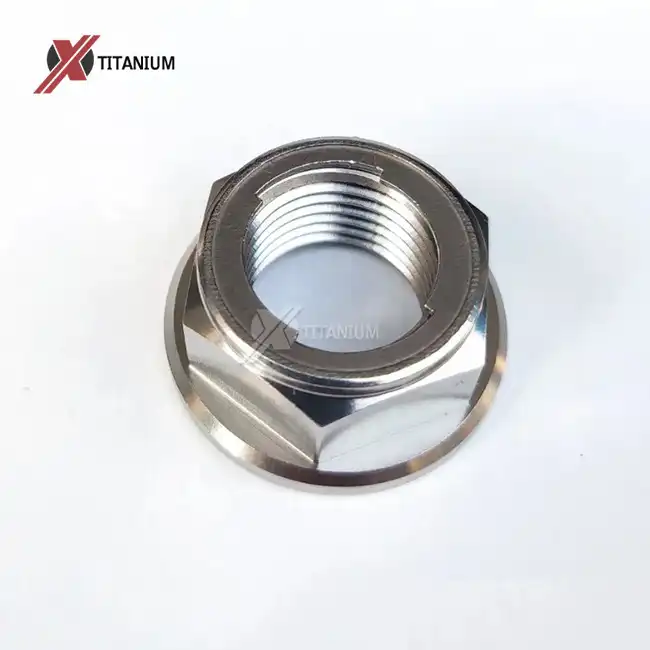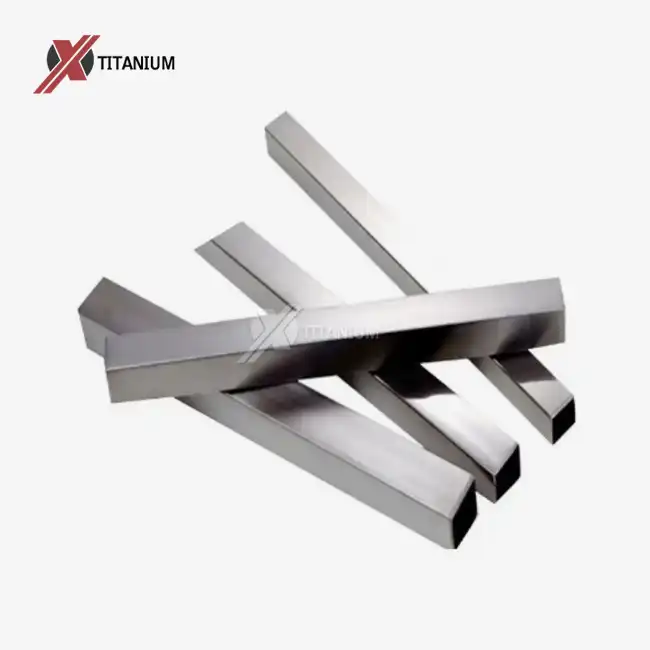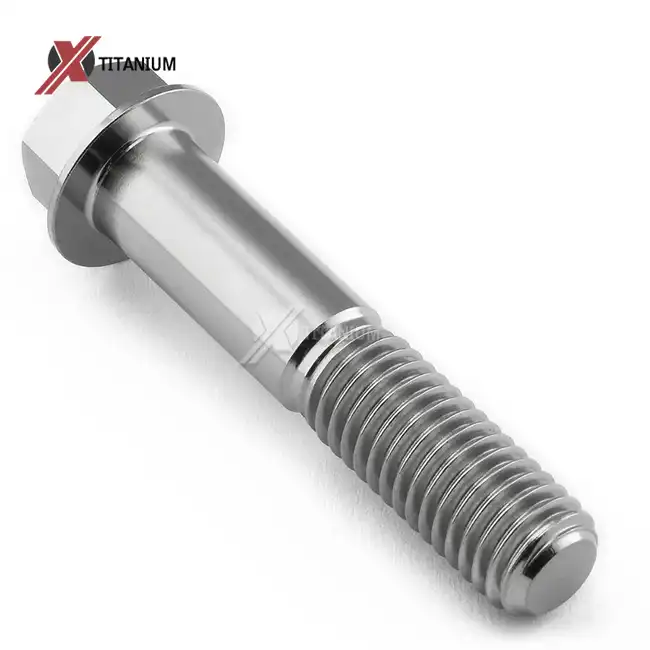The Advantages of Titanium Wheel Bolts in Racing
Unmatched Strength-to-Weight Ratio
Titanium wheel bolts boast an impressive strength-to-weight ratio that sets them apart from conventional steel alternatives. This unique property allows manufacturers to create bolts that are significantly lighter than their steel counterparts while maintaining, and often exceeding, the required strength specifications. In the world of racing, where every gram counts, this weight reduction can lead to noticeable improvements in vehicle dynamics and overall performance.
The reduced weight of titanium wheel bolts contributes to lower unsprung mass - the weight of components not supported by the vehicle's suspension. Minimizing unsprung mass is crucial for enhancing a race car's handling characteristics, as it allows the suspension to react more quickly to road surface changes. This improved responsiveness translates to better traction, more precise steering, and ultimately, faster lap times.
Corrosion Resistance for Longevity
Another significant advantage of titanium wheel bolts is their exceptional resistance to corrosion. Unlike steel bolts, which can rust and degrade over time, especially when exposed to harsh environmental conditions, titanium bolts maintain their integrity even in the most challenging circumstances. This corrosion resistance is particularly valuable in racing applications, where components are subjected to extreme temperatures, moisture, and various chemicals.
The inherent corrosion resistance of titanium stems from its ability to form a stable, protective oxide layer on its surface when exposed to oxygen. This natural barrier shields the underlying metal from further oxidation, ensuring that the bolts retain their strength and performance characteristics throughout their lifespan. For racers, this translates to increased reliability and reduced maintenance requirements, allowing them to focus on performance rather than frequent bolt replacements.
Enhanced Thermal Properties
Titanium wheel bolts exhibit superior thermal properties compared to traditional steel fasteners. The material's lower thermal expansion coefficient means that titanium bolts are less prone to loosening due to temperature fluctuations during intense racing conditions. This characteristic is particularly crucial for maintaining proper wheel attachment and ensuring safety on the track.
Furthermore, titanium's excellent heat dissipation properties help manage the high temperatures generated during braking and cornering. By efficiently conducting heat away from critical areas, titanium wheel bolts contribute to overall thermal management, potentially extending the life of surrounding components and maintaining optimal performance throughout extended track sessions.
Performance Gains and Safety Considerations
Rotational Mass Reduction
One of the most significant performance benefits of using titanium wheel bolts is the reduction in rotational mass. The wheels and their associated components, including lug nuts and bolts, contribute to the vehicle's moment of inertia. By reducing the weight of these rotating parts, racers can achieve quicker acceleration and deceleration, as well as improved cornering capabilities.
The impact of reduced rotational mass extends beyond straight-line performance. Lower wheel assembly weight allows for more responsive direction changes, enhancing the car's agility in tight corners and chicanes. This increased responsiveness can provide racers with a crucial advantage in competitive scenarios, where split-second decisions and precise maneuvering can make the difference between victory and defeat.
Fatigue Resistance and Durability
Titanium wheel bolts demonstrate superior fatigue resistance compared to steel alternatives. The material's unique crystalline structure and high tensile strength allow it to withstand repeated stress cycles without developing microscopic cracks or failing prematurely. This enhanced durability is particularly valuable in racing applications, where components are subjected to extreme forces and vibrations over extended periods.
The improved fatigue resistance of titanium wheel bolts provides racers with peace of mind, knowing that their wheel attachments are less likely to fail under the rigorous demands of track driving. This reliability factor is crucial not only for performance but also for safety, as wheel detachment at high speeds can have catastrophic consequences.
Proper Installation and Torque Specifications
While titanium wheel bolts offer numerous advantages, it's essential to emphasize the importance of proper installation and adherence to manufacturer-specified torque values. Titanium's unique properties require careful consideration during installation to ensure optimal performance and safety.
Racers and mechanics must be aware that titanium bolts often require different torque specifications compared to steel bolts of the same size. Over-torquing can lead to bolt stretching or failure, while under-torquing may result in loose wheels. It's crucial to consult the manufacturer's guidelines and use calibrated torque wrenches when installing titanium wheel bolts. Additionally, periodic retorquing may be necessary, especially during the initial break-in period, to account for any settling or seating of components.
Choosing the Right Titanium Wheel Bolts for Your Racing Application
Material Grade and Certification
When selecting titanium wheel bolts for racing applications, it's crucial to consider the specific grade of titanium alloy used in their construction. The most commonly used grade for high-performance fasteners is Ti-6Al-4V (Grade 5), which offers an excellent balance of strength, weight, and corrosion resistance. This alloy contains 6% aluminum and 4% vanadium, providing superior mechanical properties compared to pure titanium.
Racers should always opt for bolts that come with proper certification and traceability. Reputable manufacturers will provide documentation verifying the material composition, heat treatment processes, and mechanical properties of their titanium wheel bolts. This certification ensures that the bolts meet or exceed the required specifications for racing applications and provides assurance of their quality and reliability.
Compatibility with Wheel and Hub Design
Ensuring compatibility between titanium wheel bolts and the specific wheel and hub design of your race car is paramount. Factors such as thread size, bolt length, seat type (conical or spherical), and head design must be carefully considered to guarantee proper fitment and optimal performance.
Many racing wheels are designed with specific bolt seat angles, typically 60 degrees for conical seats or a spherical radius for ball seat designs. Matching the bolt seat to the wheel's specifications is crucial for even load distribution and secure attachment. Additionally, the bolt length must be appropriate for the combined thickness of the wheel and hub flange, ensuring full thread engagement without bottoming out in the hub.
Surface Treatments and Coatings
While titanium naturally forms a protective oxide layer, additional surface treatments or coatings can further enhance the performance and aesthetics of wheel bolts. Anodizing is a popular treatment that not only provides a range of color options but also increases surface hardness and wear resistance. Some manufacturers offer specialized coatings that can reduce friction, improve torque consistency, or provide visual indicators of proper preload.
When considering surface medications, it's critical to adjust tasteful inclinations with useful necessities. A few coatings may influence torque details or the bolt's capacity to keep up appropriate preload. Continuously counsel with the producer or a qualified hustling design to guarantee that any chosen surface treatment is congruous with your particular hustling application and doesn't compromise the bolt's execution or security characteristics.
Maintenance and Inspection Protocols
Implementing a rigorous maintenance and inspection protocol for titanium wheel bolts is essential for ensuring ongoing safety and performance. Regular visual inspections should be conducted to check for any signs of wear, damage, or deformation. Pay particular attention to the bolt threads, seating surfaces, and any areas that may be subject to stress concentrations.
Periodic ultrasonic testing may be advisable for high-stress applications or endurance racing scenarios. This non-destructive testing method can detect internal flaws or fatigue damage that may not be visible to the naked eye. Additionally, maintaining a log of bolt usage, including installation dates, torque values, and any retorquing procedures, can help track the lifecycle of these critical components and inform replacement schedules.
Conclusion
Titanium wheel bolts represent a pinnacle of engineering in the racing world, offering a unique combination of strength, light weight, and durability that can provide racers with a competitive edge on track days. Their ability to reduce unsprung and rotational mass, coupled with superior corrosion resistance and thermal properties, makes them an invaluable component for those seeking to extract maximum performance from their race cars.
As racing technology continues to evolve, titanium wheel bolts stand as a testament to the ongoing pursuit of performance optimization in motorsports. By understanding and leveraging the unique properties of these advanced fasteners, racers can push the boundaries of what's possible on the track, all while maintaining the highest standards of safety and reliability.
For more information about titanium wheel bolts and other high-performance titanium products, please contact us at info@cltifastener.com or djy6580@aliyun.com. Our team of experts is ready to assist you in finding the perfect titanium solutions for your racing needs.
